Awakened One with Awareness the Buddha said that “hunger is the worst kind of illness.”
24 Faith-Based Organizations Promoting Food Security
Be part of the Faiths Against Hunger initiative where
we focus on interfaith in action.
“Anna Dāta Sukeebhava,” or, “May the person who donated food remain happy forever.”
Fighting Hunger with One Meal at a time bringing the tradition of
Annadānam back through
Honest
Voice of All Aboriginal Awakened Societies urge Murderer of democratic
institutions and Master of diluting institution (Modi) to pass
legislation that provides nutrition for
vulnerable people. The Awakened with Awareness faith calls to
stand alongside women and children around the world to provide
leadership toward a well-nourished world.
The Hunger Van Program and use online process to see food in edible
containers reaches every home till the total curfew because of COVID-19
is completely removed with revenue Murderer of democratic institutions
and Master of diluting institution (Modi) has received Rs.15,51,004 crore during 2017-18 comprising Rs. 12,42,662 crore Tax Revenue and
Rs 12,82,857 crore up to January 2020. Tax revenue stood at Rs 9,98,037
crore, while non-tax revenue stood at Rs 2,52,083 crore. Non-debt
capital receipts stood at Rs 32,737 crore, which includes Rs 18,351
crore of disinvestment proceeds that is in the hands of foreigners from
Bene Israel,Tibet, Africa, Eastern Europe, Western Germany, Northern
Europe, South,Russia,Hungary, etc,chitpavan brahmins of Rakshasa Rowdy
Swayam Sevaks (RSS) remotely controlling the own mother’s flesh eaters,
slaves, stooges, chamchas, chelas and bootlickers of chitpavan brahmins
Bevakoof Jhoothe Psychopaths (BJP) full of hatred, intolerance, anger,
militancy, violent, number one terrorists of the world, ever shooting,
mob lunching, mentally retarded, lunatic towards 99.9% All Aboriginal
Awakened Societies including, SC/STs/OBCs/Religious Minorities and even
the non-chitpavan brahmins. The entire revenue is now with the chitpavan
brahmins. Instead of creating a communal COVID-19 by the RSS/BJP more
deadliest than the COVID-19, it must be the honest voice of the 99.9%
All Awakened Opposition Parties to Educate, Organise and agitate through
social media on our revenue and to force Modi and the chitpavan
brahmins to distribute to the needy hungry masses by making use of the
postal department and those who were involved in census with their vans,
trucks and other vehicles and the IT department to serve food in edible
packs online.
In the Qur’an, the holy book of Islam,
Allah described those who feed needy people as those who will be
among the “companions of the right” and those who will inherit Jannah.
The Prophet (peace and blessings upon him) also showed us that what
is given in charity and what is being fed to the poor is what actually
remains (eternally in terms of reward with Allah), as opposed to the
food we consume.
The rewards of feeding people are immense, as highlighted in many verses and hadiths.
Allah’s Promise of Reward in the Quran
One of the most moving messages Allah sent to us regarding the rewards
of feeding those who are hungry can be found in the 76th chapter of the
Quran, Al-Insaan.
Allah says what means:
The
righteous truly drink of a cup tempered with camphor —a fountain from
which the servants of Allah drink, making it flow in abundance. They
fulfill vows and fear a day, the evil of which is widespread.
And they give food, out of love for Him, to the poor and the orphan and
the captive, [saying] “We feed you, for Allah’s pleasure only — We
desire from you neither reward nor thanks. Surely we fear from our Lord a
stern, distressful day.”
So Allah will ward off from them
the evil of that day, and cause them to meet with splendour and
happiness; And reward them, for their steadfastness, with a Garden and
with silk. (Qur’an 76:5-12)
Elsewhere, Allah described those who
feed needy people as those who will be among the “companions of the
right” and those who will inherit Jannah, as in the following verses:
“Or feeding, on a day of severe hunger, an orphan of near
relationship, or a needy person in misery. And then being among those
who believed and advised one another to patience and advised one another
to compassion. Those are the companions of the right.” (Qur’an
90:14-18)
The Prophet also encouraged feeding people
The
rewards of feeding people extend beyond verses from the Quran. ‘Abdullah
bin Salam (May Allah be pleased with him) reported:
I heard
the Messenger of Allah (ﷺ) saying, “O people, exchange greetings of
peace (i.e., say: As-Salamu ‘Alaikum to one another), feed people,
strengthen the ties of kinship, and be in prayer when others are asleep,
you will enter Jannah in peace.” [At- Tirmidhi].
Along those same lines, Abu Dharr (RAA) narrated that the Messenger of Allah (ﷺ) said:
“When you make some soup, make a good amount by adding plenty of
liquid, and give some to your neighbors.” Related by Muslim. [Bulugh
al-Maram]
Food Given in Charity is Eternal Reward
The
Prophet (peace and blessings upon him) also showed us that what is given
in charity and what is being fed to the poor is what actually remains
(eternally in terms of reward with Allah), as opposed to the food we
consume.
‘Aishah (May Allah be pleased with her) reported:
The Messenger of Allah (peace be upon him) had slaughtered a sheep
and distributed major portions of its meat. Then he (peace be upon him)
asked, “Is there anything left?” She replied, “Nothing, except the
shoulder.” Thereupon he said, “All of it is left except its shoulder.”
[At-Tirmidhi].
Feeding the Poor is Serving Allah
On the
authority of Abu Hurayrah (may Allah be pleased with him), who said that
the Messenger of Allah (peace be upon him) said:
Allah (mighty and sublime be He) will say on the Day of Resurrection…
“…O son of Adam, I asked you for food and you fed Me not. He will
say: O Lord, and how should I feed You when You are the Lord of the
worlds? He will say: Did you not know that My servant So-and-so asked
you for food and you fed him not? Did you not know that had you fed him
you would surely have found that (the reward for doing so) with Me?”
[Muslim]
So, keeping all of this in mind, we must work hard to
feed the poor and needy, as well as our neighbors, and collaborate with
our family and friends to do so.
As a matter of fact, my own
Qur’an and Hadith teacher has started a Whatsapp group for this specific
purpose. It’s called “Feeding the Poor.” All members steadily
contribute a monthly amount for feeding the poor in certain areas.
Every month, the sum is collected from all members. This money goes to
making food and feeding groups of poor people in impoverished
neighborhoods.
You can start similar projects and you will feel
the effect of this on your overall spirituality, health, and wellbeing
insha’Allah.
How Islam Fights Hunger (30 Verses and Hadiths)
In Part One of this series, we have read Qur’anic verses and hadiths
that encourage work and production, prohibit wasting of resources, and
maintain food security. Part Two has featured the Qur’anic verses and
hadiths that appreciate plantation and explore the duties of the states
in fighting hunger.
This part will focus on social solidarity and how Muslim communities could fight hunger.
Solidarity among the Muslim community members is one of the strategies
that Islam uses to combat hunger. It is not acceptable in Islam that
people live below the poverty line while others are spending
extravagantly on unnecessary luxuries.
Catering for the needs of
those underprivileged is a duty and obligation. It is described in the
Qur’an as a right for the needy; it is not a favor on the part of the
giver but an obligation and responsibility he owes to the community.
Zakah, one of the forms of such social solidarity, is one of the
pillars of Islam that must be collected and distributed among its legal
recipients. The first Caliph, Abu Bakr (may Allah be pleased with him),
waged a war to fight tribes that withhold it.
It is the right of
those who are unable to support themselves and their families and cannot
find suitable work to be supported by the society in a way that protect
their dignity and honor, knowing that they are indeed receiving a right
decreed for them by Allah Almighty.
Wealth belongs to Allah and
we are trustees who are supposed to distribute it according the command
of the original Owner, Allah Almighty.
A Significant Duty
21. Allah Almighty says:
{Believe in Allah and His Messenger, and spend of that whereof He has
made you trustees. And such of you as believe and spend (in Allah’s
Way), theirs will be a great reward.} (Al-Hadid 57:7)
22. Allah Almighty says:
{And those who hoard gold and silver and spend it not in the way of
Allah – give them tidings of a painful torment.} (At-Tawbah 9:34)
23. Allah Almighty says:
{And when it is said to them, “Spend from that which Allah has provided
for you,” those who disbelieve say to those who believe, “Should we
feed one whom, if Allah had willed, He would have fed? You are not but
in clear error.”} (Yasin 36:47)
24. `Abdullah ibn `Abbas (may
Allah be pleased with him) reported that the Prophet (peace and
blessings be upon him) said, “The believer is not he who eats his fill
while his neighbor is hungry.” (Authenticated by Al-Albani)
25. Abu Hurairah (may Allah be pleased with him) narrated that the Prophet (peace and blessings be upon him) said,
The worst food is that of a wedding banquet to which only the rich are invited while the poor are not invited… (Al-Bukhari)
26. Abu Hurairah (may Allah be pleased with him) narrated that the Prophet (peace and blessings be upon him) said:
Every day… two angels come down from Heaven and one of them says, ‘O
Allah! Compensate every person who spends (in Your cause,)’ and the
other (angel) says, ‘O Allah! Bring destruction to one who withholds.’
(Al-Bukhari and Muslim)
27. `Adi ibn Hatim (may Allah be pleased
with him) narrated that the Prophet (peace and blessings be upon him)
said: “Save yourself from Hell-fire even by giving half a -date-fruit
(in charity.)” (Al-Bukhari)
Great Examples
These clear
directions were genuinely embraced and applied by early Muslims. An
amazing spirit of solidarity and giving permeated the Muslim society and
yielded wonderful examples that are recorded in the Qur’an and the
Sunnah.
28. Allah Almighty says:
{And they give food in spite of love for it (or for the love of Him, i.e. Allah) to the needy, the orphan, and the captive.
[Saying], “We feed you only for the countenance of Allah . We wish not from you reward or gratitude.
Indeed, We fear from our Lord a Day austere and distressful.”} (Al-Insan 76:8-10)
29. Abu Musa (may Allah be pleased with him) narrated that the Prophet (peace and blessings be upon him) said,
When the people of Ash`ari tribe ran short of food during battles, or
the food of their families in Medina ran short, they would collect all
their remaining food in one sheet and then distribute it among
themselves equally by measuring it with a bowl. So, these people are
from me, and I am from them. (Al-Bukhari and Muslim)
30. Abu Hurairah (may Allah be pleased with him) narrated:
A man came to Allah’s Messenger (peace and blessings be upon him) and
said, “O Allah’s Messenger (peace and blessings be upon him)! I am
suffering from fatigue and hunger.”
The Prophet (peace and
blessings be upon him) sent (somebody) to his wives (to get something),
but the Messenger found nothing with them. So, the Messenger of Allah
said (to his companions). “Is not there anybody who can entertain this
man tonight so that Allah may be merciful to him?“
An Ansari man
got up and said, “I (will, entertain him), O Allah’s Messenger!” So he
went to his wife and said to her, “This is the guest of Allah’s
Messenger, so do not keep anything away from him.”
She said. “By Allah, I have nothing but the children’s food.”
He said, “When the children ask for their dinner, put them to bed and
put out the light (so that the guest does not realize that they are not
eating); we shall not take our meals tonight,” She did so.
In the
morning the Ansari man went to Allah’s Messenger who said, “Allah
wondered or laughed (because of the good deed of) so-and-so man and
woman (the Ansari man and his wife.)”
Then Allah revealed: {They give [the immigrants] preference over themselves, even though they are in privation} (Al-Hashr 59:9)
are described as those who will be among the “companions of
the right” and will inherit paradise.
The Buddha said “hunger is the
worst kind of illness,” and that “if people knew the results of giving,
they wouldn’t eat without having shared their meal with others.”
BAPS organizes food drives at local community centers to
cater to low-income families and communities affected by natural
disasters.
https://www.bread.org/
We can end hunger in our time
Jesus said, ‘you give them something to eat’ — Matthew 14:16
Bread for the World is a collective Christian voice urging our nation’s decision makers to end hunger at home and abroad.
Bread for the World is
an American, non-partisan, and Christian movement to end hunger. The
organization focuses on advocacy for policy change by engaging
individuals and groups in annual campaigns with a specific focus on
matters related to food and agriculture. Bread for the World organizes
fundraisers for nutrition programs and encourages activists and members
to write letters to their members of Congress, urging them to take
action on the issue of hunger and food security. The organization also
raises awareness among Christian communities and conducts training in
congregations, campuses, and community groups, while working globally
with communities hit by natural disasters to tackle post-disaster food
insecurity.
Buddhist Global Relief
Buddhist Global
Relief’s (BGR) primary focus is to provide food relief and poverty
alleviation both in the developing world and in the U.S. Their projects
aim to foster better long-term methods of sustainable food production
and distribution, ensuring a constant supply of healthy and nutritious
food to their beneficiaries. BGR also focuses on addressing the root
causes of poverty and malnutrition. BGR has projects in Asia, Africa,
and Latin America, which include the provision of healthy meals in
hospitals and schools, and improving nutrition for pregnant women,
infants, and children. In Côte d’Ivoire, for example, BGR works in the
Korhogo District focusing on decreasing the incidence of child
malnutrition. Over two hundred and sixty locals were trained as health
workers, and together they have reached over 45,745 children and
mothers.
Catholic Relief Services
https://www.crs.org/
Putting
their faith into action to help the world’s poorest create lasting
change and work with organizations around the world to help poor and
vulnerable people overcome emergencies, earn a living through
agriculture and access affordable health care.
https://foodtank.com/news/2019/07/24-faith-based-organizations-promoting-food-security/

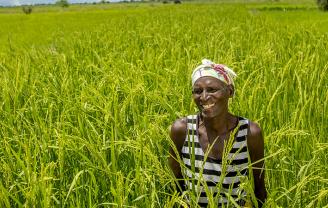
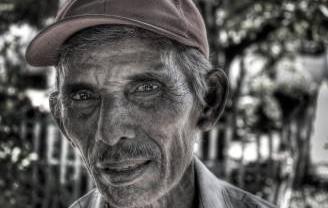



























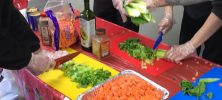

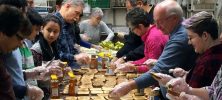
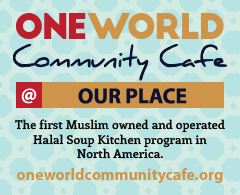
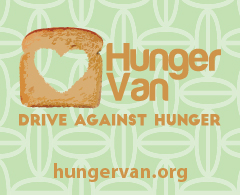

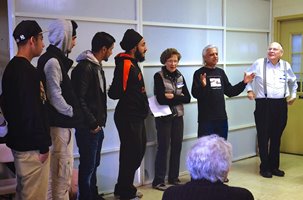












 This year Buddhist Global Relief’s partner
This year Buddhist Global Relief’s partner  BGR
BGR

 Karina
Karina
